Obongjayar: “No one’s doing what I’m doing”
Written by ABR on 04/03/2022
This story originally appeared in i-D’s The Out Of Body Issue, no. 367, Spring 2022. Order your copy here.
A week before we meet, I watch Obongjayar perform at 180 House as part of the Soho Rising live music programme, showcasing emerging talent. He deftly rattles through his latest EP, Sweetness, a collaboration with Nigerian record producer Sarz. Glowing under red strobe lights and supported by 80s-influenced synth bass and clanging cymbals from a live band, Obongjayar breaks into falsettos and husky tones as, over four tracks, he describes the tenderness and pressures of the early stages of romance. It’s an enchanting, sensory and nostalgic experience, one that invites you to the floors of a discotheque, back into the embrace of your first crush, and into the future of Afropop.
It only enriches the soft-heartedness of Obongjayar’s lyrics when I learn that the EP was born from an interaction with his girlfriend. He tells me the story over breakfast in Peckham: “The day I was meeting Sarz, I was texting my girlfriend, and she must have said something like ‘okay, chat to you later my sweet.’ I responded with ‘sweetness.’ And I just had that lightbulb moment.” Finding mainstream love songs to be “simplistic, poppy and palatable” he resolved to use the session with Sarz that evening to produce a true portrait of infatuation, trust and the things that go left unsaid. The result is a project with impressive depth that embraces the cracks and fractures of love to produce one of the most romantic gifts a girlfriend could receive.
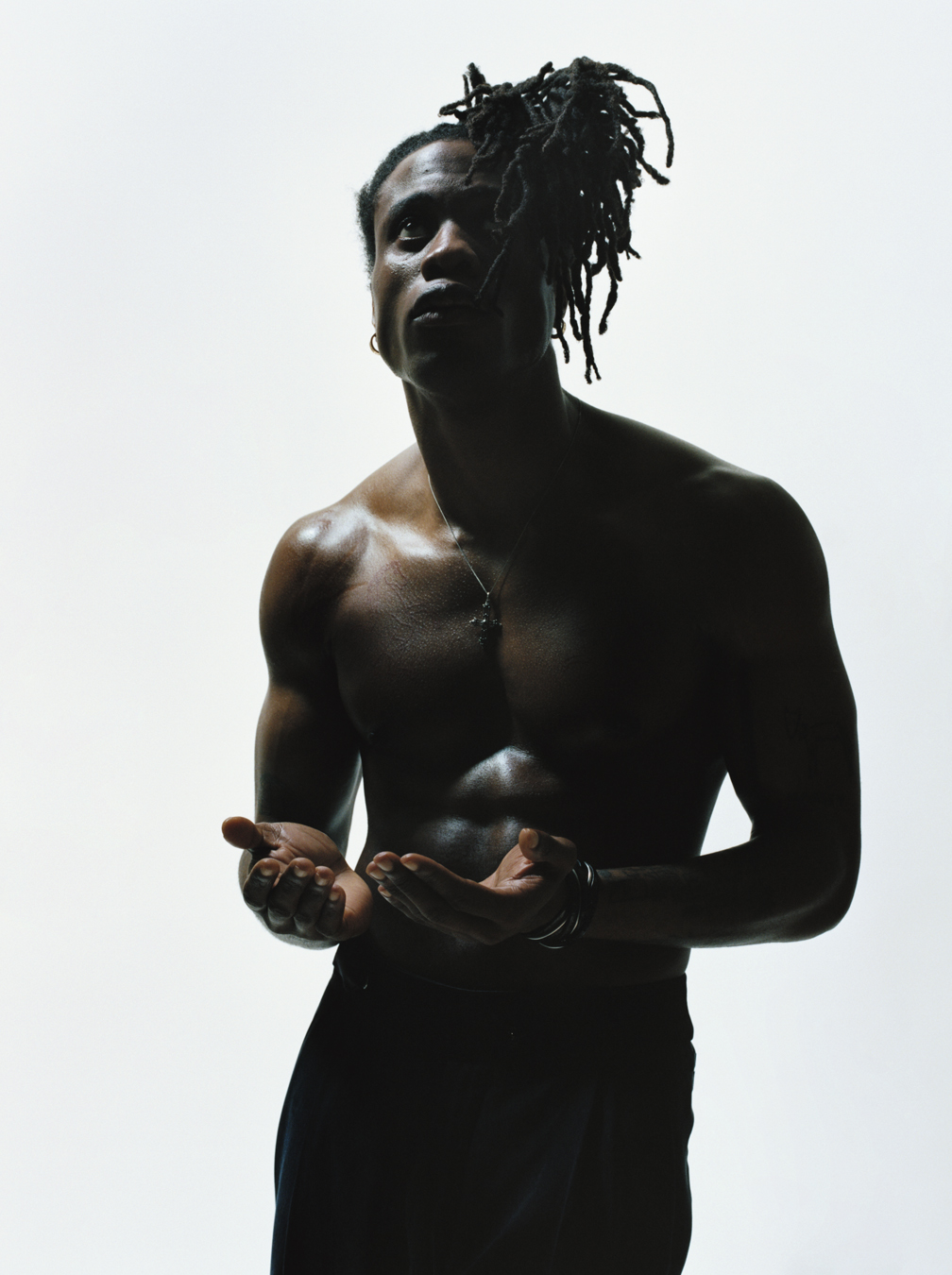
Like Sweetness, Obongjayar’s music is often born from a trigger, a thought, or a feeling. His process for music-making is anything but formulaic, but often the message comes before the sound. “I’m very observant about the world that I live in. Walking down the street I might pick up something that will spark a thought that I want to explore further.” Almost like an experience of synaesthesia, the sound often accompanies the thought: “My process is trying to replicate the sound of that thing I hear in my head.”
This is the method behind what has been a succession of commanding records, and, despite being featured in that line-up of “emerging” artists at 180 House, Obongjayar is not a new name. In 2016 he released an early Soundcloud demo that caught the attention of XL Records founder Richard Russell, going on to release his debut EP, Home, through the label and later featuring on Russell’s Everything Is Recorded alongside Sampha, Giggs and Kamasi Washington. Three further EPs – Bassey, Which Way Is Forward? and Sweetness – structure his discography alongside features on Pa Salieu’s “Style & Fashion”, as well as Lil Simz’s “Point and Kill”, who he supported during her sell-out three-day run at Brixton Academy in December 2021. After a near six-year victory lap, he finally feels ready to release his first album, the celestially named Some Nights I Dream of Doors.
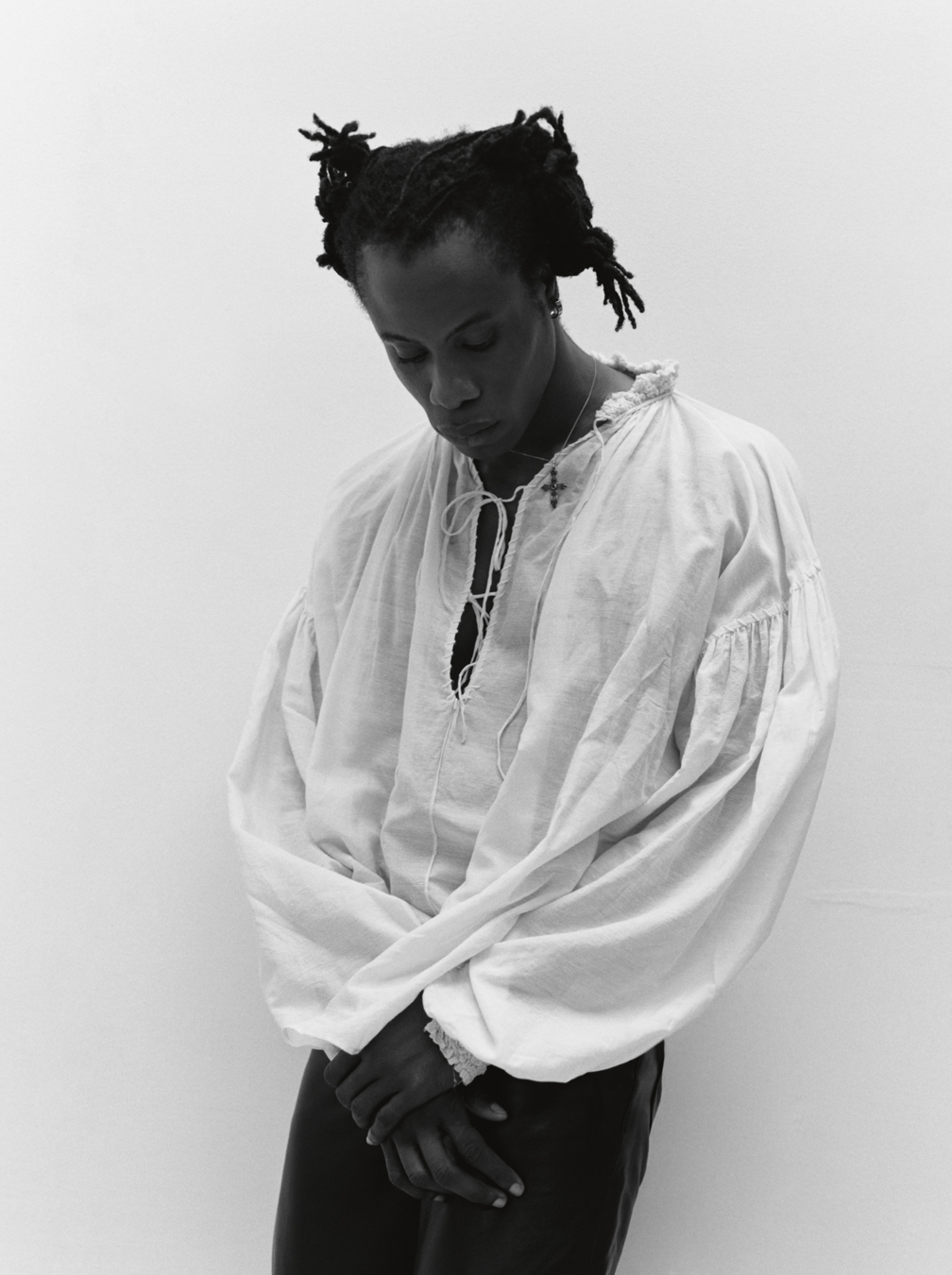
A description that has followed Obongjayar throughout his career is “genre defiant”, and Some Nights I Dream Of Doors is as difficult to pin down as it is fun to unravel and analyse. Despite this dexterity, Obongjayar insists that his stylistic breadth is natural, rather than forced. “I’m not trying to be defiant. I’m just making music. I’m not trying to paint in a particular style. It’s just the way it comes out – if influences join together to become this thing, then so be it. If it makes sense in my head, if it’s something I like, I’m not afraid to add that to the theme.” Even so, the ability for Obongjayar’s music to escape definition comes naturally from his background, and the exposure to numerous musical influences through migration.
“I’m trying to replicate the sound of that thing I hear in my head.”
Obongjayar was raised in Calabar, Nigeria by his grandmother, as his mother had left Nigeria when he was four to escape domestic violence at the hands of his father. In Calabar, his early exposure to music came through the American exports of hip-hop and rap, which became the fabric of his early sound. “I was rapping for a very long time. I grew up on Nelly, 50 Cent, and Snoop Dogg would play in my uncle’s car, and my mum would play Brandy in her car. That was what I was attuned to.”
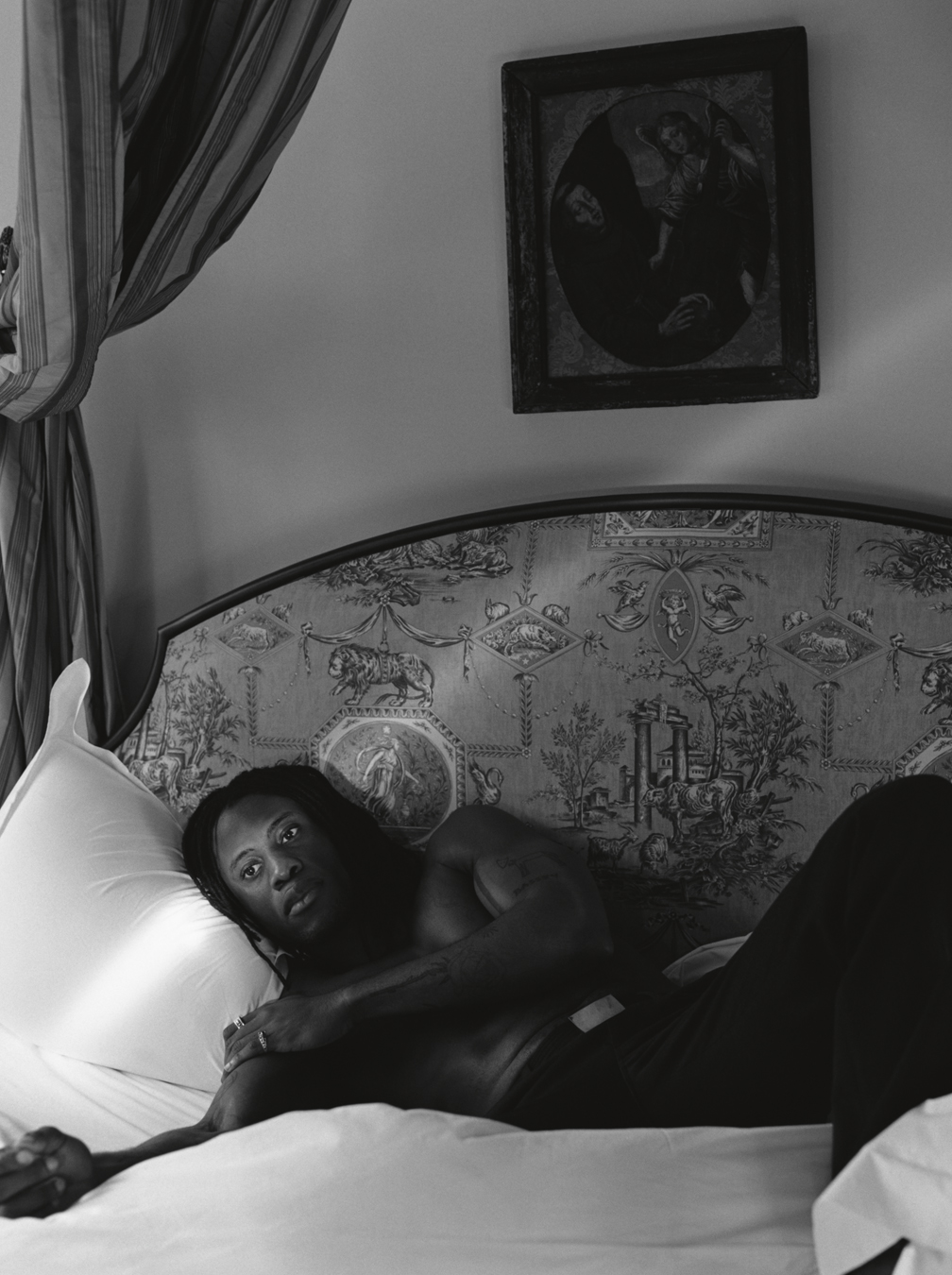
Though his music now vibrates with the cadence of Southeastern Nigeria, his exposure to Nigerian music was minimal early on, and delayed by technological constraints. “The only time that I was properly influenced by a Nigerian artist was this woman called Asa, she’s a Nigerian singer, and I heard her self-titled album on the radio in 2007. I had this little radio and you could only go to one section of the house to catch this station in Port Harcourt called Rhythm FM. There’s this song called “Bi-ban Ké” that was playing and I was like ‘she’s speaking Yoruba, this is incredible.’ I’d never heard anything like this, because up until that point, everything I’d known was Nigerian music trying to sound American, and doing it really badly.” Asa’s music was a mixture of classical R&B and Yoruba folk, but Obongjayar didn’t hear the entire song, because his radio lost connection.
It was when he moved to England to join his mother in Ashford, Middlesex, that he finally began to shatter the boundaries of his Americanised imagination. Primarily, being able to access YouTube meant he could finally finish listening to Asa’s album. But it was his move to Norwich, for university, that introduced him to more niche influences to devour. “I got introduced to this whole world of music, funk, indie, electronic music. I had bursts of excitement and realised I can be who I am and exist. I don’t have to be doing the main, big thing, I can be experimental and true to who I am.”
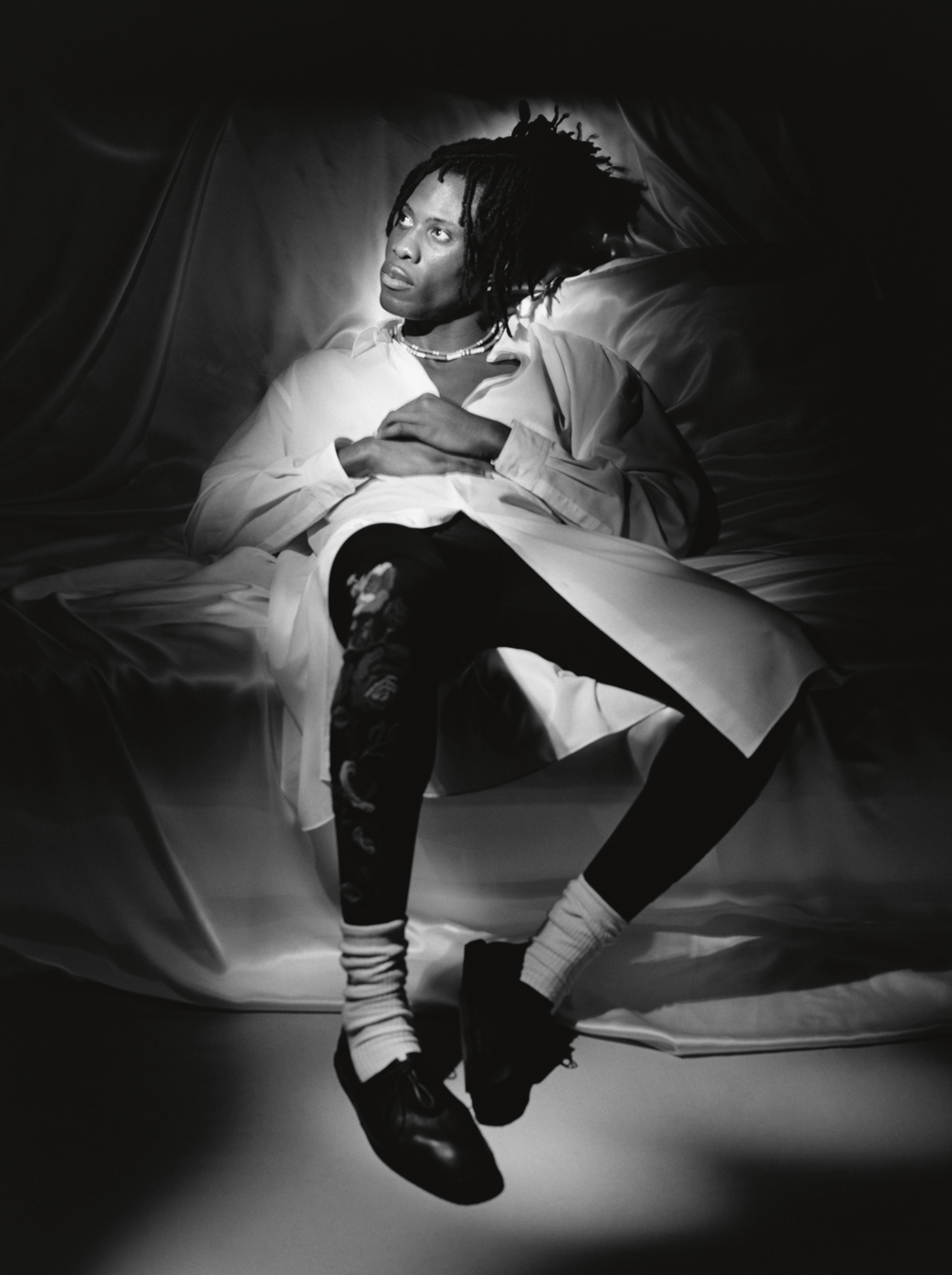
Obongjayar believes that it’s both his movement between different environments and everything he’s done in his career that has built up to his album. “If you go back through my discography, you can just see that everything I’ve done stylistically, musically and sonically, has come together on this project. Some Nights I Dream of Doors is a mix of Which Way is Forward?, Home and Bassey.” These EPs blended singing, rap and slam poetry to create ruminations on identity, belonging, race, spirituality, Christianity, love, and political turmoil – and in Some Nights I Dream of Doors all of these themes endure.
Sitting in a café, Obongjayar works through his album with me, singing lines from memory and, a natural percussionist, tapping on the table and stomping his feet to replicate the rhythms found in the record. Like much of his discography, across this album are resounding messages of political urgency – his music is the tool through which he confronts the injustices and emotional anguish which structures the lives of young people. His social media profiles are titled “Obongjayar, Devil Slayer”. I ask him who he believes devils to be, and he responds “the racists, the corrupt motherfuckers who are trying to fuck up my life and my future — politicians.” He recalls writing the track “Message In A Hammer”, the day after the Lekki Tollgate Massacre when, during the #EndSARS protests in Nigeria, the Nigerian army open fired and murdered at least twelve protesters. With a militaristic urgency, Obongjayar sings “you may shoot me/ kill me/ throw me in jail” as a polemical resistance to state-sanctioned violence. He says, “the soldiers – who are supposedly meant to protect you – don’t even know how to do their jobs because they’re so insecure and obsessed with power. And I know this because I’m Nigerian, I went to boarding school in Nigeria. It’s a hierarchy thing.”
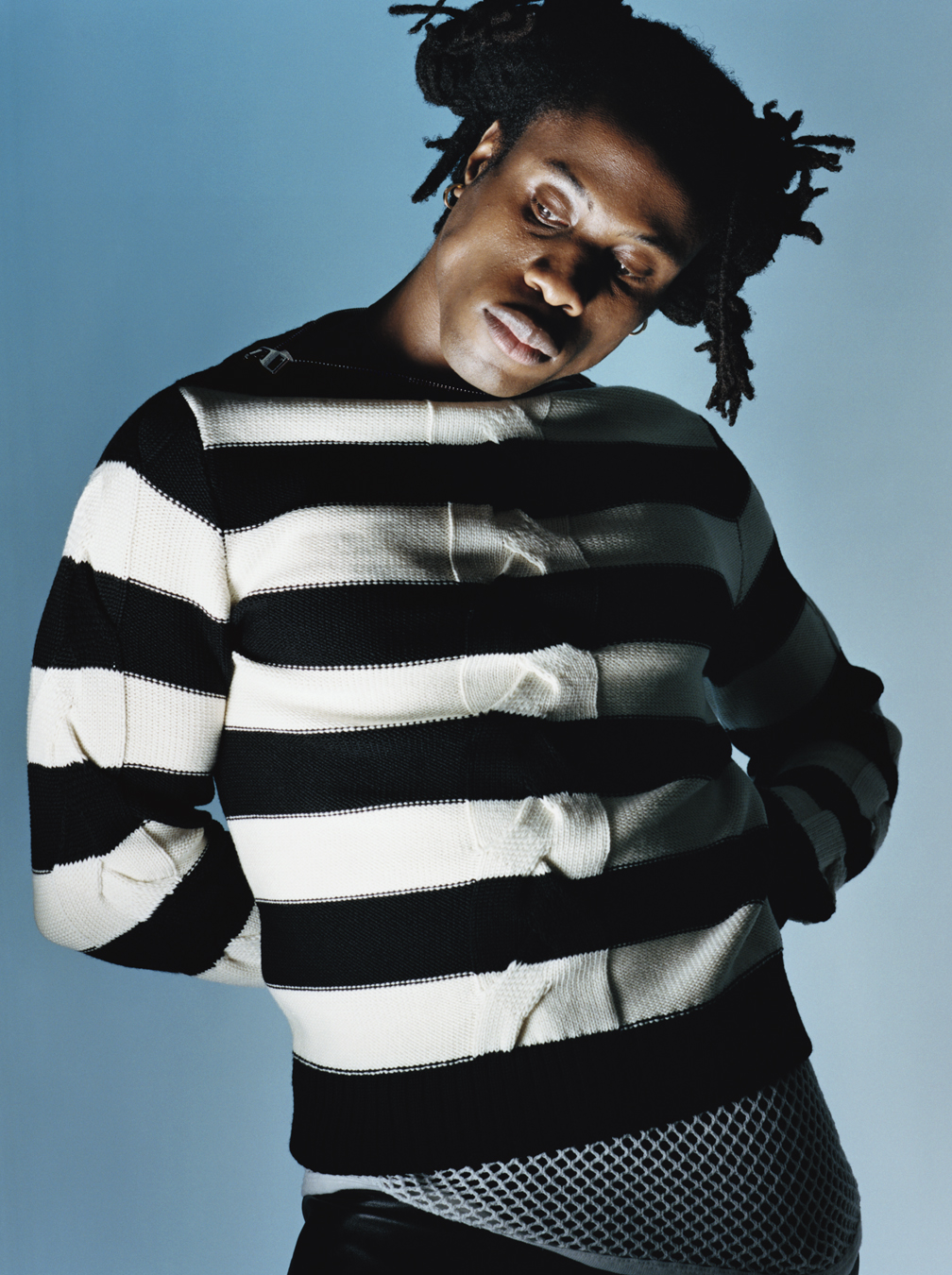
He describes Nigeria’s gerontocracy as learned from a young age, and in boarding schools seniority is defined by how old you are and mandates deference from young people: “If they say ‘come here’, you come.” He imagines it’s this mentality which enraged the Nigerian army to the point of murder. “So this is what I think happened — the idea of like, the army man being like, oh, yeah, you can’t do that. And someone protested, being like, no, I can do it, it’s my right to do this. And army men getting pissed off.”
This grappling with authority is revisited consistently on the album, particularly on “New Man” where he sings uncompromisingly, “show yourself just as you are/ whether they like it or not/ no more yes sir, no sir/ you are not my father/ come and try me.” These tracks are defined by reverberations, controlled stiffness, and fearless lyricality; characteristics of Obongjayar’s music which have led to frequent comparisons with Fela Kuti — particularly his 1977 album Zombie, which directly attacked the Nigerian government and its soldiers. Though there is clear intertextuality between the lyrics of Obongjayar and Fela, he insists that these similarities are unintentional, though perhaps born from the same sense of political urgency.
Despite this, he recalls first listening to Fela after coming across a CD of his in a bootleg shop in Calabar, which he played to the curiosity of his grandmother who questioned how he came to know the pioneering Afrobeats artist. “People just used to see him as a bad boy who smoked a lot of weed. This idea of Fela Kuti back then was not as cool as it is today. But I thought, I’m a bad boy. I’m going to listen.”
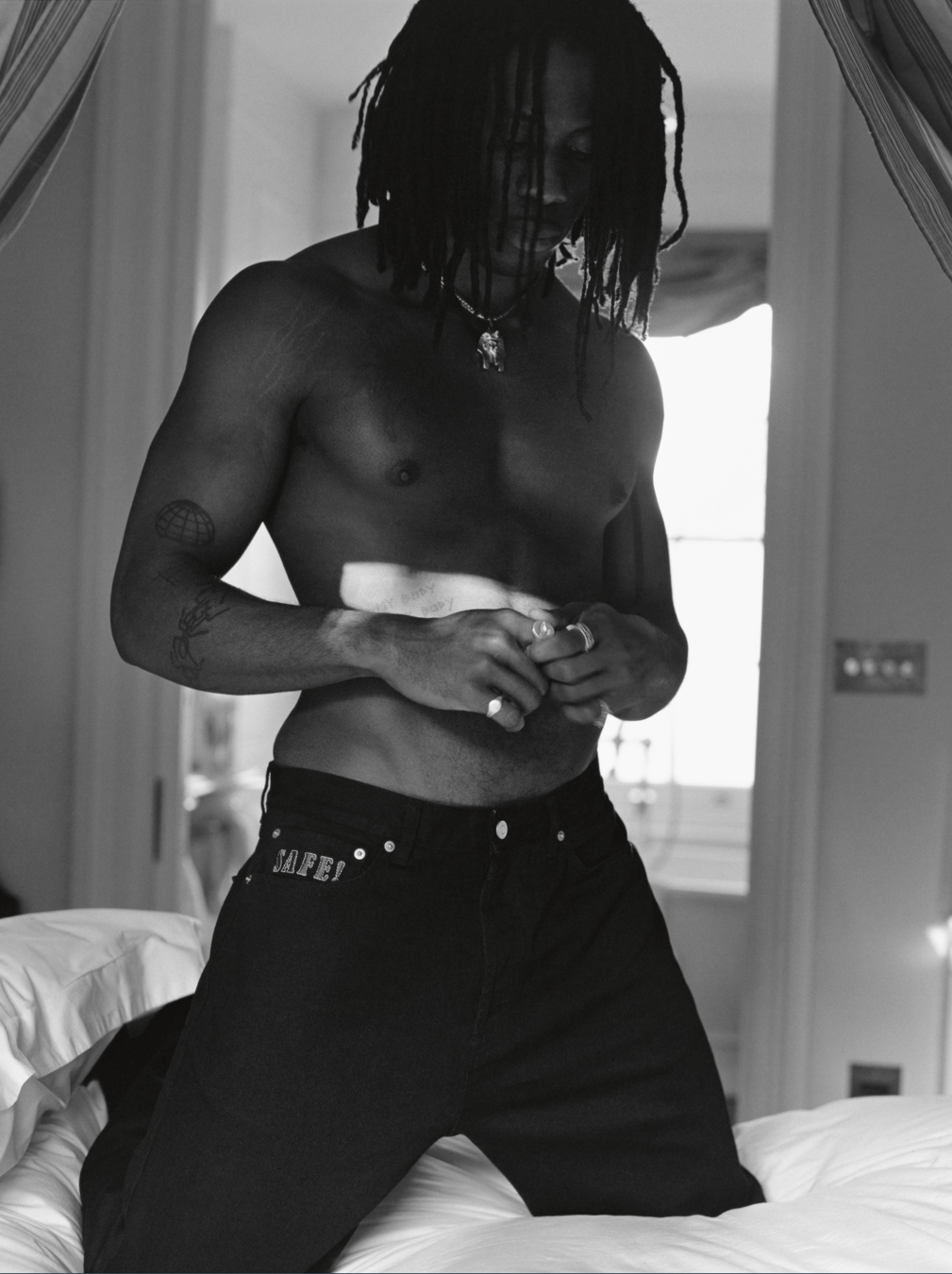
Still, Some Nights I Dream of Doors is not all confronting political turbulence. Gentler and more intimate moments reminiscent of Sweetness are found on “I Wish It Was Me”, where Obongjayar subverts the gerontocracy of his youth to praise his younger brother. There is an enduring love for his brother which has survived decades, and though they are both adults with exactly two years between them (they are both born on 8 September), he sings with dulcet and angelic tones, as though he is rocking a baby to sleep with a peaceful lullaby. Equally, on the piano accompanied ballad “Wind Sailor”, he closes off the album with his glorious falsetto vocals in a song that muses on music as a medium that saved him and offered him escape. “Music is how I can get all this stuff out, my perspectives, and that’s what ‘Wind Sailor’ is.”
What’s most present in Some Nights I Dream of Doors, as with much of Obongjayar’s music, is the power of love. Whether that be love for music, love for his family, or love for the youth of Nigeria. It is an album where Obongjayar pours out his heart unflinchingly, and for that reason across the twelve tracks there are no features. “I’ve got so much to say. There’s no room for anyone else” he says, though notes that he dreams of working with Pharrell or Thom Yorke, and relished the opportunity to collaborate with Barney Lister – who handled the production of “Which Way is Forward?” – on this new body of work. With aspirations as big as his heart, and confidence developed through years of experimentation and industry experience, it becomes clear to me why Obongjayar has waited until now for a full-length album. He’s not an artist obsessed with commercial success, but one driven by innovation and a desire to create new and fresh sounds. “No one’s doing what I’m doing. What I’m making is fresh. Sometimes when you look at the media, it’s the same shit, and it’s only being covered because it’s what’s being hyped up and going to get clicks. But that’s not what music is supposed to be.”
Credits
Photography Oliver Hadlee Pearch.
Fashion Tom Guinness.
Hair Amidat Giwa at Bryant Artists using Oribe.
Make-up Elaine Lynskey using Deciem.
Set design Camilla Byles.
Photography assistance AJ Numan and Bella Sporle.
Styling assistance Kit Swann, Scott Grant and Archie Grant.
Hair assistance Avrelle Delisser.
Production Danson Productions.
Follow i-D on Instagram and TikTok for more on music.



 ABR Group
ABR Group